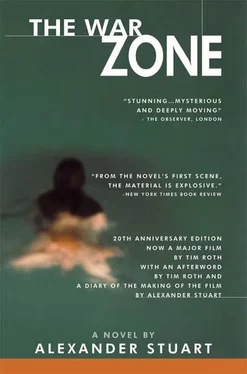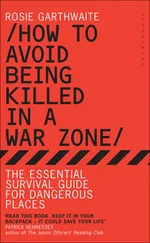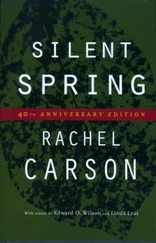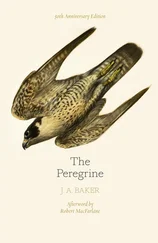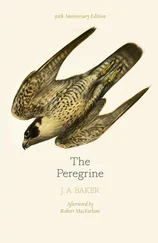I pass the space where the oak was that caused us to crash the night Jack was born, but farther on there’s another space – another clearing in the hedgerow, another pit in the ground – and the fact that I don’t really know which one it is seems to drag the shock of stabbing Dad back into some past and no longer reachable place in my brain.
I am not complete. I don’t think I killed him, but if I did, it doesn’t feel right, it doesn’t feel like I wanted it to. I want more – but not more of the same. If I’ve killed him, he won’t suffer. I don’t want him to be dead, I want him to suffer. I think he will. But what I’m looking for now is personal satisfaction. The suffering is up to him.
There’s a dead bird on the road and I run over it with my bike, little globs of it sticking to my front tire then working their way off as I come into Exeter. My mother is here in the hospital and the bird gives me a mental picture of Jack’s stomach, though I hope he’s in better shape than that. It should be my father’s guts I see but it’s not and I’m here only because I’ve got to be somewhere. I head for the station, not the hospital, staggered by how long everything takes to do – the time it takes to cycle the length of a street, the dreamlike whir of a milk van moving in front of me, my almost stationary poise as I wait at lights, feet off the ground, swaying slowly as gravity enters my mind and pulls me sideways.
I abandon the bike and buy a ticket, puzzled by the money in my pocket – almost eighty pounds, although I don’t remember putting it there or where it came from. Dad gives me money. Mum gives me money. I used to steal it from them, too, but they never noticed so I stopped. I walk onto the platform, making a deliberate effort to move like everyone else. I am surrounded by faces I would not want to see at my trial, anyone’s trial: they know they’re right, this is the time for them, they’ve got their lives organized – even though they’re fucked, they’re making sure someone else is fucked worse than them.
•
The train journey has a reality of its own, woven in and out of my attempts to stay awake. If I could feel it, the speed would help. But only when another First Great Western express flashes past in the opposite direction on a parallel track does any real sense of the danger penetrate the carriage. The possibility of swinging a door open as one approaches and diving out into its path occurs to me, but if I did that I’d want to take one or two of my turd-faced fellow passengers with me and it might get complicated. As it is, I want to remain anonymous, drinking a foul cup of coffee and dozing in my sweaty T-shirt and piss-stained jeans among these clean livers. If Dad is dead, I may face problems in London – that’s why I bought a ticket, rather than risk a charge through the gate at Paddington. If Dad is dead (and if he is, I should be traveling under the train, my spine coupling the carriages), I don’t see how Jessie can avoid involving the law. If he isn’t, he won’t go out of his way to look for trouble.
•
I want darkness again, and it’s a long wait until then. Paddington seems vast and echoing when I arrive, a huge distortion of sound and movement. I pick my way through the crowd, the fast food smells, stumbling into a knot of German tourists in Union Jack bowler hats, twisting my leg on a plastic bag as I move to get out of the way of an electric mail cart driving right at me and towing its own train of crap, watching as two uniformed guards manhandle a dosser through a door marked ‘PRIVATE’.
I am clumsy and hungry but the burger I buy becomes a lump in my throat which even a flat, syrupy Coke can’t dislodge and I wind up in the gents, my stomach feeling like a bag of wet sand that has to be dropped, my dead brain calculating that if I make it to tonight I will have been up for almost sixty hours without more than three or four of sleep.
I head off into the underground, refusing to make it easy on myself by taking the Docklands line, which is too clean, too bright, too much like something the Prick would create. I stare at the tube map, my eyes adding colors to it and failing to follow the same line for any distance. Finally I trace a route to Wapping, using my finger and moving my lips as I think, then lose myself in an unending circle of escalators and platforms until I smash my knee on a wall and sort myself out.
•
Twice I miss Whitechapel, where I’m supposed to change lines – once on the way there, then again when I switch trains and come back. A woman, a young mother not much older than Jessie, stands over me at one point in the empty carriage, a sick-faced leering toddler at her feet, and says in a really aggressive voice – as if she’s prepared to back up her words with a fight – ‘Have you got any money? I saw you counting your change just now. All my kid’s had since yesterday breakfast is a bag of crisps and some Orangina . ’ I must look abusable, beatable – at Earl’s Court I had a man stick his clammy hand on the seat of my jeans.
The sun is out at Wapping and the river is so bright it just flashes on my brain, leaving shrinking purple images. I try to work out which way to walk by following it, but have trouble remembering which side of my body to keep it on. There’s a lot of new building going on here, like my father’s wharf but not so poncy, less full of itself, its reconstitutedneo-Victoriana-crappiness. In fact, it’s ugly, that’s what it is, it’s fucking awful. It’s hard to choose between the new functional ugliness and the old functional ugliness, so why not nuke it all? The people around here wouldn’t mind – not the ones who’ve been here a lifetime. They’re used to being blitzed. Hitler’s dead; the IRA’s history; now we’ve got homegrown jokers willing to blow it all up – it doesn’t make much difference to the locals. Because outside the electric gates and barbed-wire fences, not a lot’s happening.
There’s a whole stretch I walk through where even the newly remodeled tenement houses are boarded-up, windows broken, colored paint peeling off the doors. With a suddenness that really frightens me, I remember being high up on a roof with the Prick when I was little. We were standing on top of an office block that was waiting to be demolished, I think, and gazing at the view; he had his hands tight on my shoulders, probably convinced that I was going to go running off across the flat, unwalled roof. There was a high-rise of grim flats some distance away, close enough to see the layers of weather-stained, wood-clad balconies where people kept their window boxes, the junk they couldn’t fit inside their flats, maybe even a rabbit or pigeons. Out of the lot of them – I don’t know, maybe fifty or sixty – one had had its creosoted brown wood painted orange and my father drew my attention to it.
‘Look at that,’ he said, and his voice was almost bitter or defeated or something. ‘One desperate attempt at individuality.’
It didn’t mean anything to me – I was six, maybe, or seven – but I think the extent of his own silence that followed worried him. Now, stepping along, seeing the wreckage around me, thinking about what I’m going to do, I think I can understand what it was – the fact that nothing he could build could be anything those people would care about, anything less than his own huge wank, his own shot at imperialism. He should thank me.
•
I sleep on the grass in a tiny park by the water, but I’m troubled by the look on Dad’s face as I stuck him, the sight of Jessie’s stomach as she bent to help him.
Then there’s a terrible moment when I hear bird sounds and trucks moving and I stir, thinking the crane operator who drowned off Dad’s wharf has come out of the river and is standing over me, sludge dripping off him, his face horribly mutilated by the action of a ship’s propeller – but there’s no one here, only an old man on the path, talking to his dog and staring up at a grim statue against an orange sky.
Читать дальше
